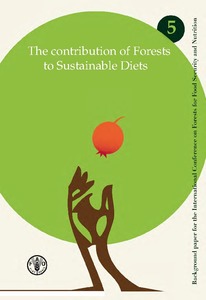Focal point
Location
The Food and Agriculture Organization of the United Nations leads international efforts to defeat hunger. Serving both developed and developing countries, FAO acts as a neutral forum where all nations meet as equals to negotiate agreements and debate policy. FAO is also a source of knowledge and information. We help developing countries and countries in transition modernize and improve agriculture, forestry and fisheries practices and ensure good nutrition for all. Since our founding in 1945, we have focused special attention on developing rural areas, home to 70 percent of the world's poor and hungry people.
Members:
Resources
Displaying 2121 - 2125 of 5074Review of the compatibility of sectoral laws with the right to food
Right to Food Handbooks 3. This handbook presents the process to be followed for the revision of sectoral legislation, since it may affect various aspects of the right to food. The purpose of this revision is to ensure that the legal framework of the country is favourable for the progressive realization of the right to food. The content of this handbook is based on the FAO's “Guide on Legislating for the Right to Food”.
The gender and equity implications of land-related investments on land access and labour and income-generating opportunities
A case study researched and published by the Food and Agriculture Organization (FAO) on gender and equity implications of land related investments on selected agricultural investments in Lao PDR, published in Rome, 2013.
Identifying benefit flows: studies on the potential monetary and non-monetary benefits arising from the international treaty on plant genetic for food and agriculture
This volume is published in connection with the research project, Identifying the Potential Monetary and Non-monetary Benefits Arising from the Utilization of Plant Genetic Resources under the Multilateral System of the International Treaty on Plant Genetic Resources for Food and Agriculture, carried out with the financial support of the Government of Australia. The project prepared five interlinked studies between July 2011 and March 2012, and their reports are published in this book.
Enfoque territorial para el empoderamiento de las mujeres rurales en América Latina y el Caribe
América Latina y el Caribe (ALC) se presenta, ya entrado el siglo XXI, como un continente contradictorio y heterogéneo, en el que conviven realidades de profundas diferencias. A la vez que se destacan en el continente las llamadas economías emergentes por sus años sostenidos de crecimiento económico, perduran casos de persistente pobreza y precariedad social e institucional.











